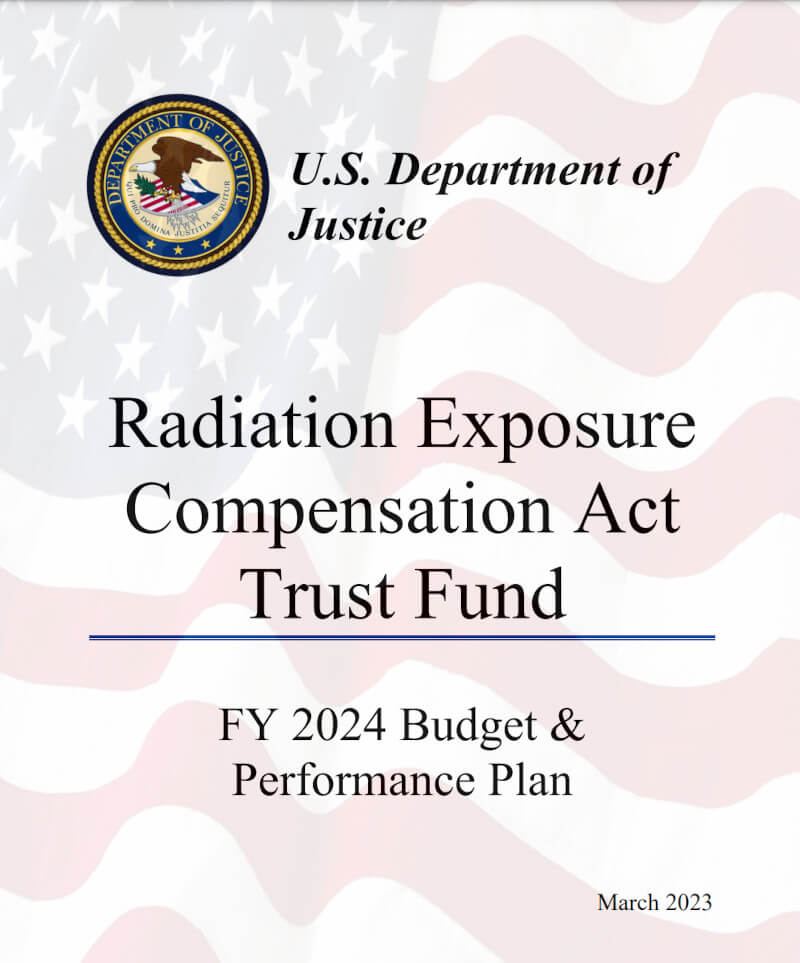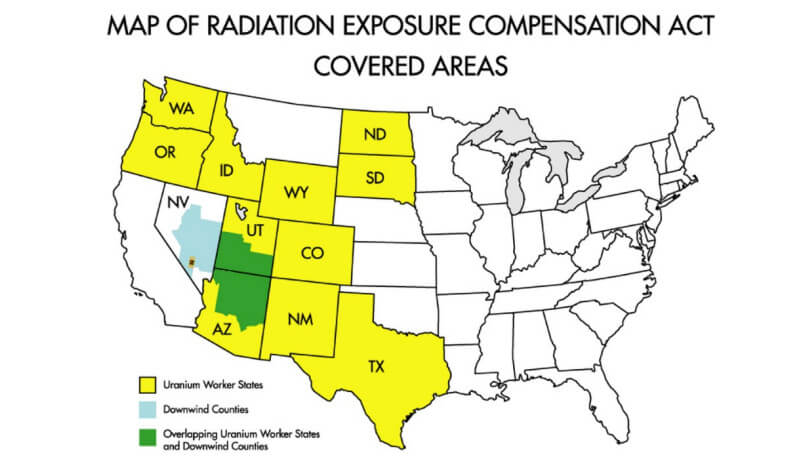RECA
What is Radiation Exposure Compensation Act (RECA)?
The Radiation Exposure Compensation Act (“the Act” or “RECA”) was signed into law by President George H.W. Bush on October 15, 1990. This significant legislation established the “Radiation Exposure Compensation Act Program,” which provides compensation to individuals who developed specific cancers, leukemia, and other illnesses due to their exposure to radiation. This exposure occurred as a result of above-ground nuclear weapons tests, occupational activities at certain testing sites, or while working in roles involving uranium milling, mining, or ore transportation during the Cold War period. Under RECA, there are three distinct compensation levels available to eligible individuals based on their circumstances.
The administration of this program falls under the purview of the Department of Justice. Since its inception in April 1992, the RECA program has processed over 54,000 claims. As of December 31, 2022, approximately $2.6 billion has been awarded, marking a remarkable 75 percent approval rate for the 40,258 approved claims. On June 7, 2022, President Biden signed the RECA Extension Act of 2022, extending the RECA Trust Fund and the deadline for filing new claims by two years from the date of enactment.
Notably, on July 27, 2023, the United States Senate passed the National Defense Appropriations Act, which included an amendment to the RECA. This amendment is set to expand coverage areas, increase compensation for both past and future claimants, extend the covered timeframes, and add additional eligible illnesses, among other changes. While a competing bill was passed by the United States House without these amendments, members from both the House and the Senate will collaborate in a committee to merge the two bills into a unified piece of legislation. It’s anticipated that this comprehensive legislation will be presented for a vote in the fall of 2023.
RECA Compensation Amounts
The RECA program offers tax-free compensation to the following groups:
- Downwinders—Individuals who were present in specific areas near the Nevada Test Site during atmospheric atomic weapons testing and subsequently developed one of the specified types of cancers may be eligible for $50,000 in compensation.
- On-Site Participants—Those who actively participated in the atmospheric testing of atomic weapons and developed qualifying cancers as specified in the statute can receive $75,000 in compensation.
- Uranium Miners, Millers, and Ore Transporters—Individuals who worked in uranium-related roles between 1942 and 1971 and developed one of the diseases outlined in the statute may be eligible for $100,000 in compensation.
Following the passage of P.L. 117-139 on June 7, 2022, the RECA program, which was originally set to expire on July 10, 2022, is now extended and scheduled to sunset on June 7, 2024.

Current Laws
For the latest information regarding laws related to RECA, please refer to the Radiation Exposure Compensation Act Trust Fund (FY 2024 Budget & Performance Plan) by the U.S. Department of Justice.
National Defense Authorization Act (NDAA)

NDAA Amendment, Senate Bill 1058
Senate Bill 1058, which was passed by the Senate on July 27, 2023, introduces significant expansions to the Radiation Exposure Compensation Program. It broadens eligibility to individuals who have faced radiation exposure without receiving adequate compensation. This expansion is especially relevant for “downwinders” and uranium industry workers who continue to experience health effects associated with their exposure.
The proposed amendment acknowledges that radioactive fallout knows no state or county boundaries. It aims to include residents of various states and regions, such as Arizona, Colorado, Idaho, Montana, Nevada, New Mexico, Utah, Guam, and portions of Missouri, within the downwinder eligibility. Additionally, it extends eligibility to certain individuals involved in uranium-related activities after 1971. This proposed amendment not only raises compensation levels but also extends the RECA program by 19 years following its enactment.
Currently, the amendment has not been passed by the House of Representatives. The Senate version of the bill, incorporated into the NDAA, and the House version of the NDAA (without the proposed amendment) are under consideration by a committee comprising Senators and Representatives. The final version of the NDAA is expected to be consolidated within this committee and presented for votes in both the House and the Senate by the conclusion of 2023.

